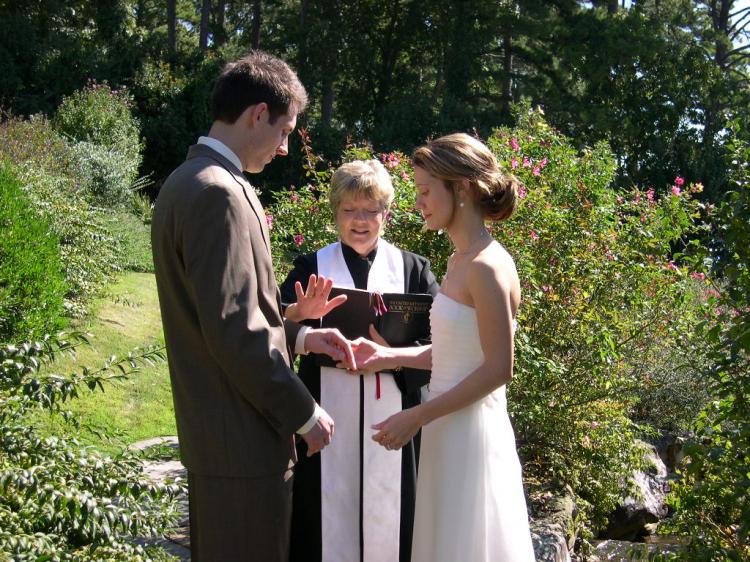“While the economy is sluggish in many areas, early indications show the wedding industry is not suffering an extensive slowdown. Couples are spending less, sticking closer to their budget, and scaling back where it makes sense; however, most vendors are reporting normal to better business sales,” said Shane McMurray, CEO of Wedding Report, on “The Wedding Report” blog.
The researchers predict that between 2008 and 2013, the number of weddings in America will stay almost flat, with a small increase by about 1.7 percent.
By the end of 2008, the wedding industry will haul in approximately $54 billion, according to estimates.
Statistics from other firms suggest that the Wedding Report numbers are on the low side. The National Association of Wedding Ministers estimates annual wedding industry earnings of around $72 billion, of which $20 billion is spent on the reception and $19 billion goes to buying presents.
Wedding photographers worked on between 18 and 21 wedding engagements during 2007, spending around 28 hours at each shoot and earning between $42,000 and $92,000 from just wedding shoots, according to data from the “2008 Wedding Photographer Survey” by Photo District News (PDN).
Survey results indicate that the pay from a shoot is not dependent on the number of hours the photographer spends on the shoot, but more on the negotiated fee.
“Photographers, who work harder, putting in longer hours and shooting more weddings, earn more money—but only up to a point. A more certain way to earn more, if you’re already putting in a 45 hour work week, is to raise your fees,” suggested PDN’s recent press release.
Tracking the Wedding Industry Income
“The wedding industry is a large industry in terms of dollars, but tracking where that money is spent is more difficult for several reasons,” according to a “Wedding Industry Research” handout from the Library of Congress.
The issue lies in that the wedding industry is comprised mostly of small businesses, such as dress shops, flower shops, caterers, photographers, DJs, and wedding planners. Rarely do weddings involve a large conglomerate like the Disney World Wedding Pavilion. Honeymooners may prefer a large hotel chain or a small and romantic hotel away from the traffic.
A majority of small business owners report their income to the Internal Revenue Service (IRS), but are generally left out when statistics for surveys are compiled. Also, small businesses do not distinguish between wedding and non-wedding generated sales, which makes IRS data unusable when collecting information on only a specific industry.
The wedding industry is also comprised of many part-time employees and freelancers who need the extra income, but may or may not report this income to the IRS.
Escaping the Lure of a Pricey Wedding
Surfing the Internet brings plenty of suggestions for weddings of all price ranges.
“Win your dream wedding” is one way to have a dream wedding without breaking your bank or emptying your pockets. The Cheap Chic Weddings Web site invites the prospective bride to enter their wedding sweepstake and win $50,000 that pays for a large beautiful wedding. The Romance-fire Website suggests “50 Ways to Save on your Wedding.”
Don’t marry between May and October, the high season for marriages or have the reception during the week or on a weekend morning or afternoon. One saves not only on the place, but also for much that is part of the wedding trimmings, including the photographer, wedding consultant or caterer.
A recent SmartMoney Web site article “They’ll Never Know: Eight Hidden Ways to Cut Wedding Costs” reminded me of a dear friend who had a list of 600 people for her daughter’s wedding and trimmed it down to 150 by holding the wedding in mid-August, when all her dear friends and relatives were taking a hard earned vacation.
“There’s lots of fat to cut…the average cost of a wedding in the U.S. is now between $21,000 and $24,000. Of course, the costs vary greatly from region to region…in the elegant suburbs of Long Island, N.Y., the tab routinely reaches $40,000 to $50,000, while you can have an awesome wedding for $12,000 in Walla Walla, Wash.,” suggests the SmartMoney article.







Friends Read Free